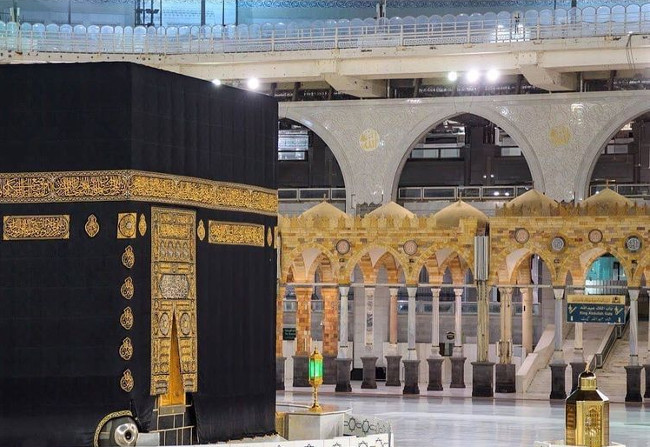
18. In Islam, there are special occasions where one is able to acquire special blessings from Allah Ta’ala. One should prepare in advance for such occasions so that one does not lose out on the opportunity of gaining the blessings of such occasions.
The way for one to prepare for such occasions is that one learns the masaail, sunnats and aadaab that relate to such occasions (i.e. how to fulfil the ibaadat of such occasions and how to conduct according to the sunnah on such occasions).
Among these special occasions is the month of Ramadhaan, the two eids, the days of qurbaani, the special days of jumuah and aashurah, the special nights of laylatul qadr and laylatul baraa’ah, when going for hajj or umrah, or when one sits in itikaaf for the last ten days of Ramadhaan.
عن محمد بن مسلمة قال: قال رسول الله صلى الله عليه وسلم: إن لربكم عز وجل في أيام دهركم نفحات، فتعرضوا لها، لعل أحدكم أن تصيبه منها نفحة لا يشقى بعدها أبدا (المعجم الأوسط، الرقم: 2856 وقال الهيثمي في مجمع الزوائد، الرقم: 17713، رواه الطبراني في الأوسط والكبير بنحوه، وفيه من لم أعرفه، ومن عرفتهم وثقوا)
Hazrat Muhammad bin Maslamah (radhiyallahu anhu) reports that Rasulullah sallallahu alaihi wasallam) said, “Indeed, throughout the days of your life, Allah Ta’ala has certain special moments (of acceptance). You should try (your best) to find these special moments (by continuously exerting yourself in righteous actions and engaging in abundant dua), for if one of you finds one of these special moments, then he will never become unfortunate thereafter.”
Imaam Qataadah (rahimahullah) mentioned, “Allah Ta’ala, according to His wish, has afforded special honour to certain things.
“Allah Ta’ala has selected certain angels to be messengers (in conveying the message of Allah Ta’ala to the Ambiyaa (alayhimus salaam), and certain people to be Rasuls. From all types of speech, Allah Ta’ala has selected His remembrance, and from all the places on earth, Allah Ta’ala has selected the masaajid. From all the months of the year, Allah Ta’ala has selected the month of Ramadhaan and the four sacred months. From the days of the week, Allah Ta’ala selected the day of Jumu’ah, and from all the nights, Allah Ta’ala selected Laylatul Qadr (the Night of Power).
“Thus, you should honour that which Allah Ta’ala has honoured, as the people of understanding know well that entities only gain importance and honour through Allah Ta’ala according them importance and honour.” (Tafseer ibnu Katheer 4/148)
19. Whenever one is faced with any doubt in regard to any aspect of one’s deen, one should refer to the rightly guided ulama to find out the Islamic perspective on the matter.
Through referring to the rightly guided ulama, one will understand the Islamic perspective on the matter and one’s doubts will be removed.
One should never resort to self-study or refer to unqualified people as this will only add to one’s doubts and create more confusion in one’s mind.
عن جابر قال خرجنا في سفر فأصاب رجلا منا حجر فشجه في رأسه فاحتلم فسأل أصحابه هل تجدون لي رخصة في التيمم قالوا ما نجد لك رخصة و أنت تقدر على الماء فاغتسل فمات فلما قدمنا على النبي صلى الله عليه وسلم أُخبر بذلك قال قتلوه قتلهم الله ألا سألوا إذا لم يعلموا فإنما شفاء العي السوال إنما كان يكفيه أن يتيمم ويعصب على جرحه خرقة ثم يمسح عليها ويغسل سائر جسده (سنن أبي داود، الرقم: 336)
Hazrat Jaabir (radhiyallahu anhu) reports that they were once on a journey when a person amongst them was struck by a rock and suffered severe head injuries. He then experienced a wet-dream (thus requiring ghusl). He therefore asked some of his companions if there was any concession for performing tayammum. They replied: “There is no concession for you since water is available.” This Sahaabi thus took a bath and passed away (as a result of making ghusl). When they returned and Rasulullah (sallallahu alaihi wasallam) was informed of this, he said: “They killed him, may Allah kill them. Why couldn’t they enquire from those who were knowledgeable when they did not know? The cure of an ailing person (an ignorant person) is to ask. It was sufficient for him to only perform tayammum and bandage his wound. He could have then rubbed his moist hand over it and wash the rest of his body.”
عن أبي مالك الأشعري أنه سمع النبي صلى الله عليه و سلم يقول لا أخاف على أمتي إلا ثلاث خلال أن يكثر لهم من الدنيا فيتحاسدوا وأن يفتح لهم الكتاب يأخذه المؤمن يبتغي تأويله وما يعلم تأويله إلا الله والراسخون في العلم يقولون آمنا به كل من عند ربنا وما يذكر إلا أولو الألباب وأن يروا ذا علم فيضيعوه ولا يبالوا عليه رواه الطبراني في الكبير (الترغيب و الترهيب، الرقم: 176)
Hazrat Abu Maalik Ashari (radhiyallahu anhu) reports that Rasulullah (sallallahu ‘alaihi wasallam) said, “I particularly fear three shortcomings in my Ummah. Firstly, due to the abundance of material wealth and possessions, jealousy for one another will spread among them. Secondly, they will begin to freely discuss the Quraan Majeed (without referring to the Ulama and the learned), whereas many meanings in the Quraan Majeed are such that they cannot be understood by anyone except Allah Ta’ala. (In regard to such verses), the well-versed scholars of the Book say: “We fully believe in it, and that it has come from Allah Ta’ala.” (Thus how much more careful should the common people be.) Thirdly, the religious scholars will be neglected and ignored and people will not see the need to refer to them (i.e. people will adopt the approach of self-study in Deen and refer to the Qur’aan and Hadith directly).”
 Ihyaaud Deen An Effort to Revive Deen in Totality
Ihyaaud Deen An Effort to Revive Deen in Totality



